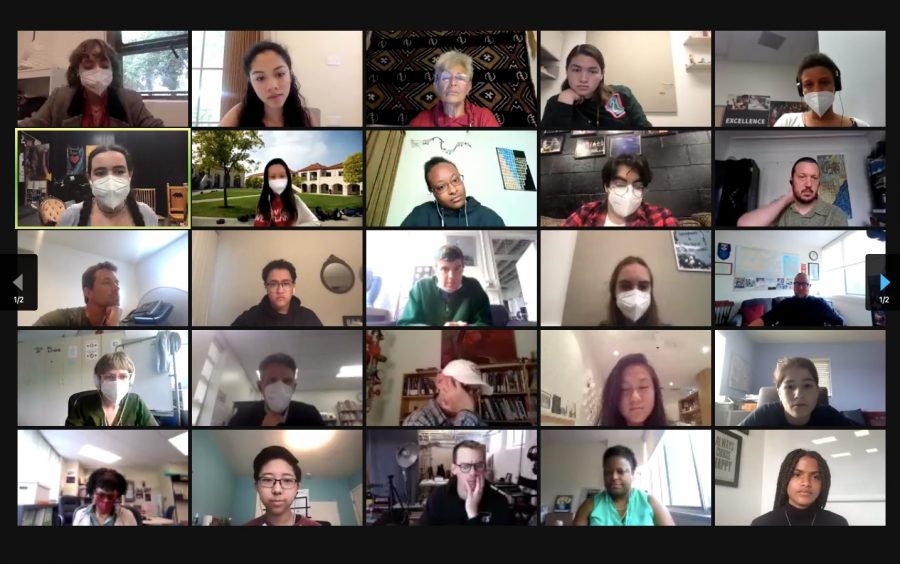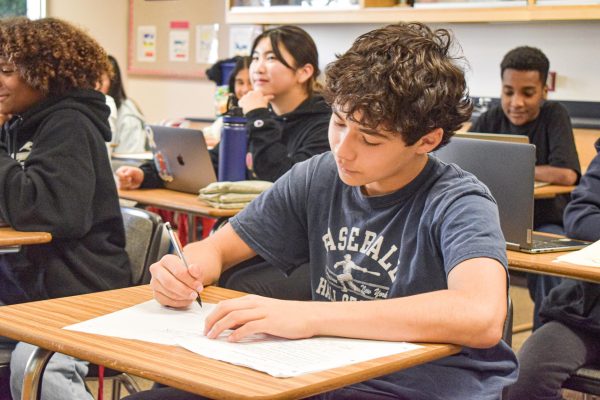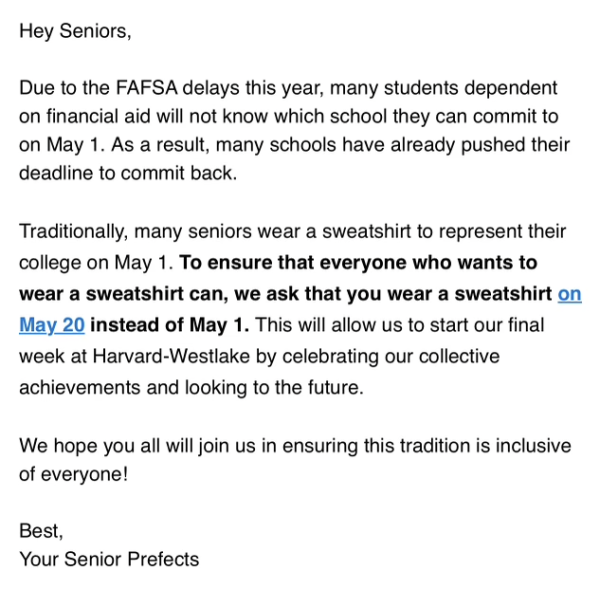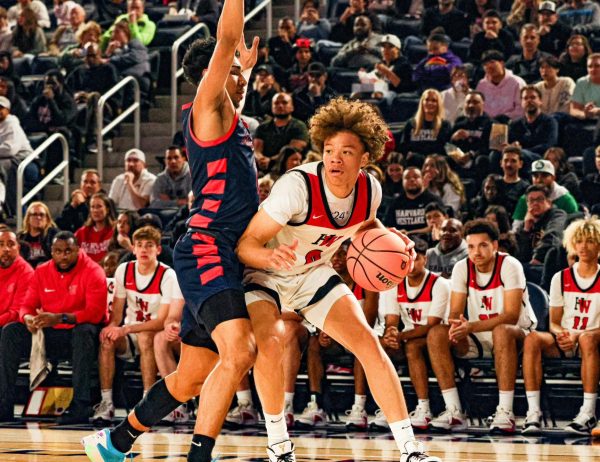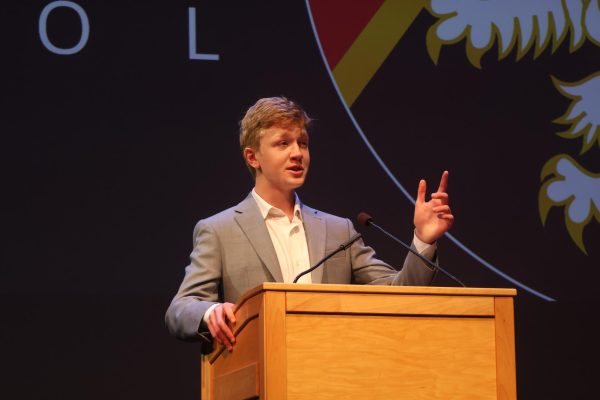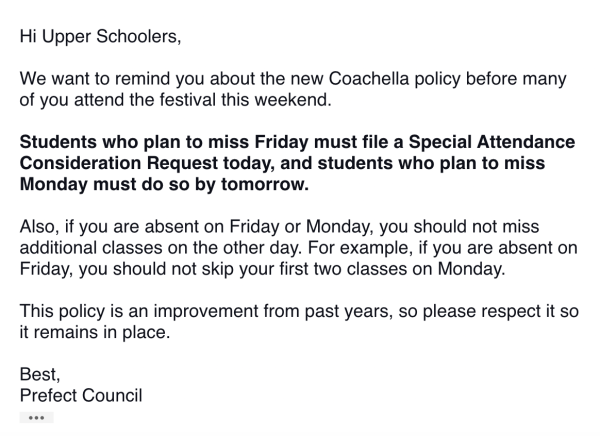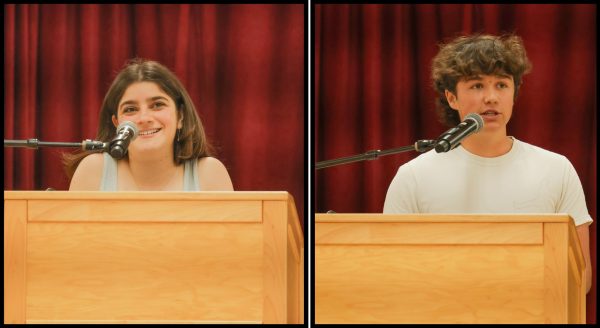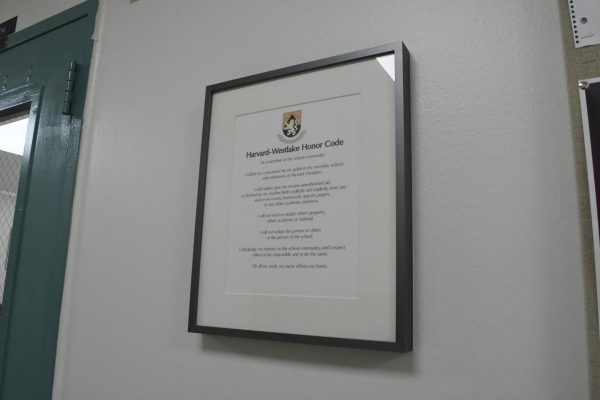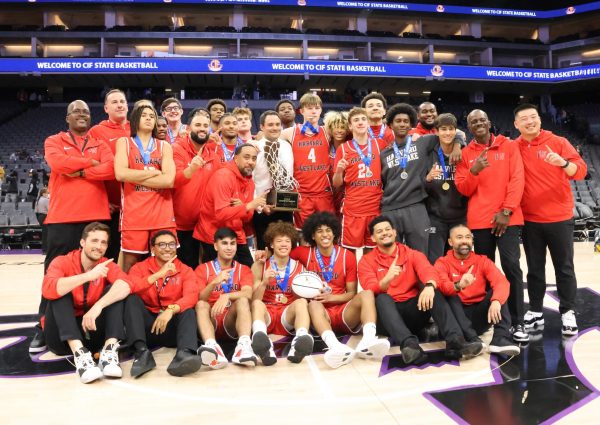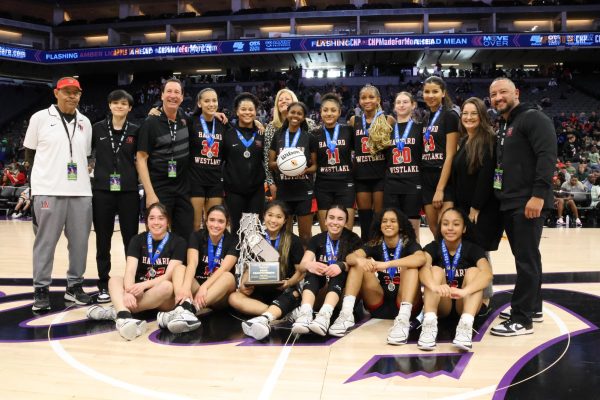SLIDE leads social and racial discussion workshops at Community Time
Community members participate in a breakout room discussion about nonpartisanship.
May 11, 2021
Student Leaders for Inclusion, Diversity and Equity (SLIDE), a collection of affinity group student leaders, hosted workshops to explore the intricacies of being a student activist during Community Flex Time May 10.
The webinar began with an anonymous poll that focused on how frequently and to what degree social issues affect student life. SLIDE member Felicity Phelan ’21 said they managed to separate school-work from social involvement until the attack on the Capitol on Jan. 6.
“[The Jan. 6 insurrection] just sort of made me crumble,” Phelan said. “Not because I was scared for my own life. It was happening thousands of miles away. The world to me felt so insane and unrecognizable that it was just hard to care about school. Everything seemed so big, and I felt very small.”
Community members were given the option to join the workshop Zoom
SLIDE members then encouraged students to join a separate Zoom meeting to engage in more intimate conversations in breakout rooms. The breakout rooms included discussions on structural racism within neighborhoods and schools, socially-engaged art, non-partisanship, modern student activism and offered a space for emotionally processing the past year. Middle School Dean Jon Carroll, who led the student activism breakout room, said pushback is an inherent part of protest.
“You have to have the conviction that what you’re doing is right, and that there is an end goal that is just and worthy, but you’re not going to please everybody,” Carroll said. “But if the passion is right, then I think that falls by the wayside.”
History teacher Lauren Nichols, whose breakout room was focused on structural racism, said social justice is beyond labelling racism.
“We can take the idea ‘good people aren’t racist; bad people are racist’ off the table,” Nichols said. “This is not a question of morality or whether you’re a good person or not. It’s about identifying and addressing the systems because we all are forced to engage in the immorality of systemic racism.”
Upper School students enjoyed listening to the conversations in breakout rooms
Mac Bailey ’23 participated in Nichols’ breakout room and said he was intrigued by the sudden change that he witnessed in the other participants.
“In the beginning, we were asked to drop a number on a scale of one to five on how racial segregation impacts us today,” Bailey said. “There were various numbers,” “At the end, all participants realized that it affects us way more than we all originally thought.”
Middle Eastern Students Association member Alon Moradi ’21 said he enjoyed engaging in a political discussion in the nonpartisan breakout room.
“It was only slightly over 15 minutes, so you couldn’t get into too much of a deep conversation,” Moradi said. “I think that some people, including myself, were just sitting back and listening more so than contributing, just because it was a complex topic, and we wanted to hear the challenging questions [History Teacher Larry] Klein posed to us.”
Moradi, who helped to organize the event as a SLIDE member, said it was challenging to manage an assembly that addressed each affinity groups’ concerns without being overtly political.
“In my opinion, with something like affinity groups, you have to be careful because that can play into the boxes that come with identity politics,” Moradi said. “Having these panels of activism is definitely important for reform, but it is sort of something where you have to tread very lightly to insure that—as [Director of Diversity Equity and Inclusion Janine] Jones reiterated—the mission of the DEI is not one that is pushing for political bias or anything like that. It’s a difficult line to tread but the mission of DEI is valuable enough that it’s worth risking.”































